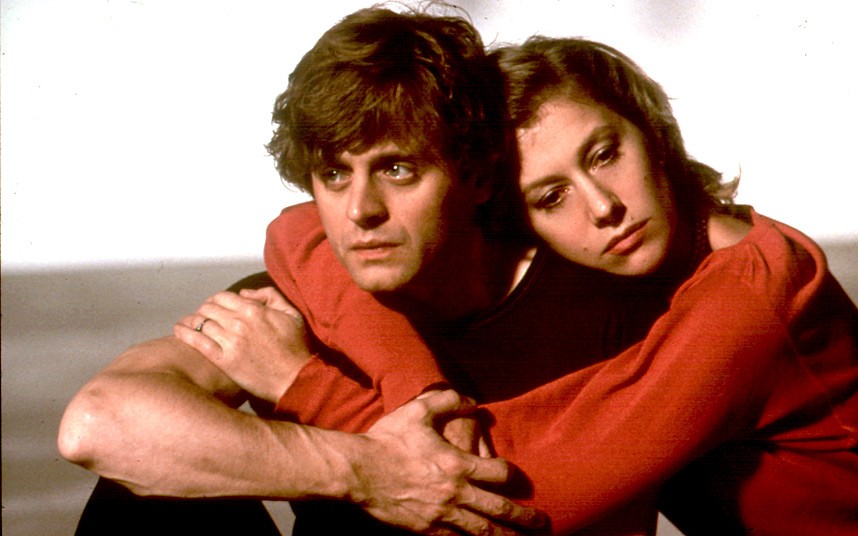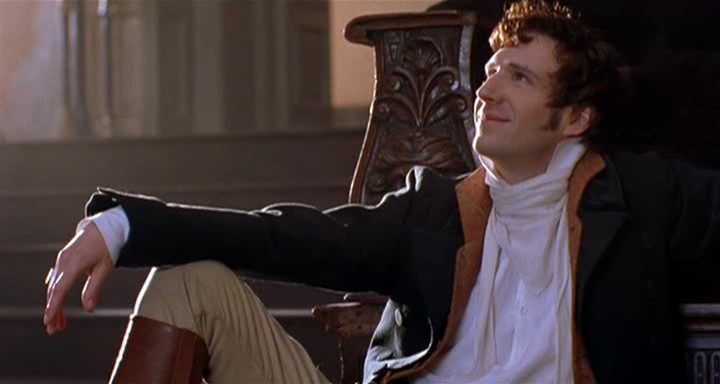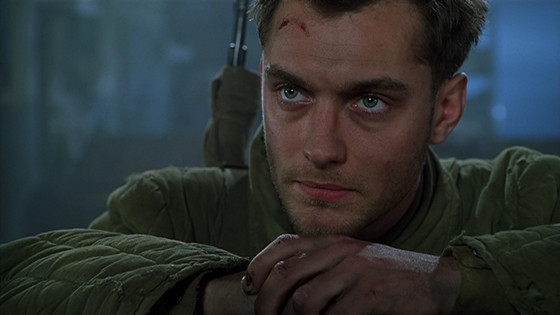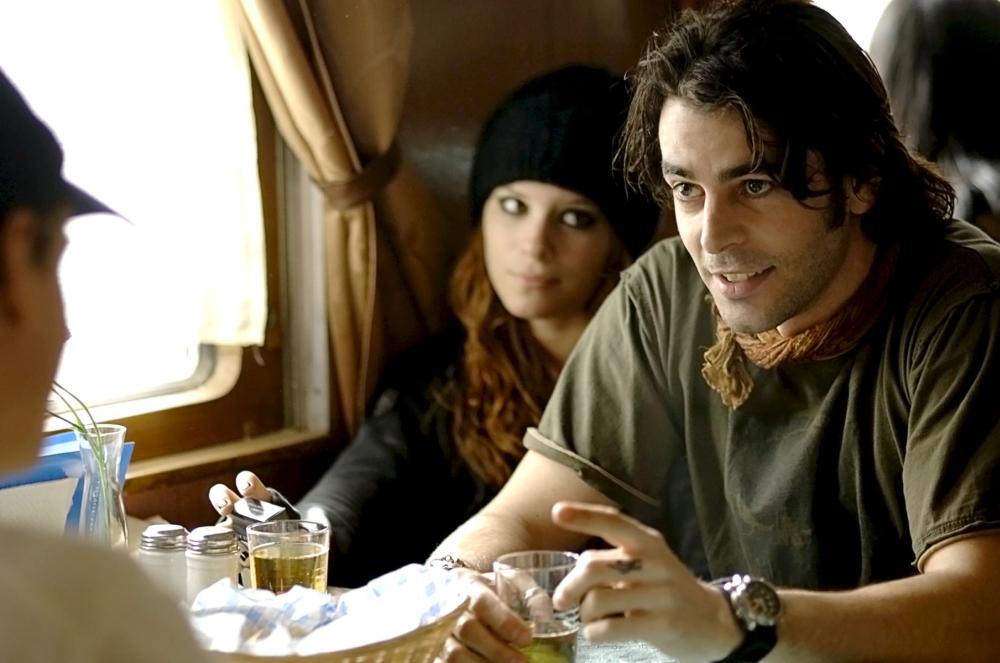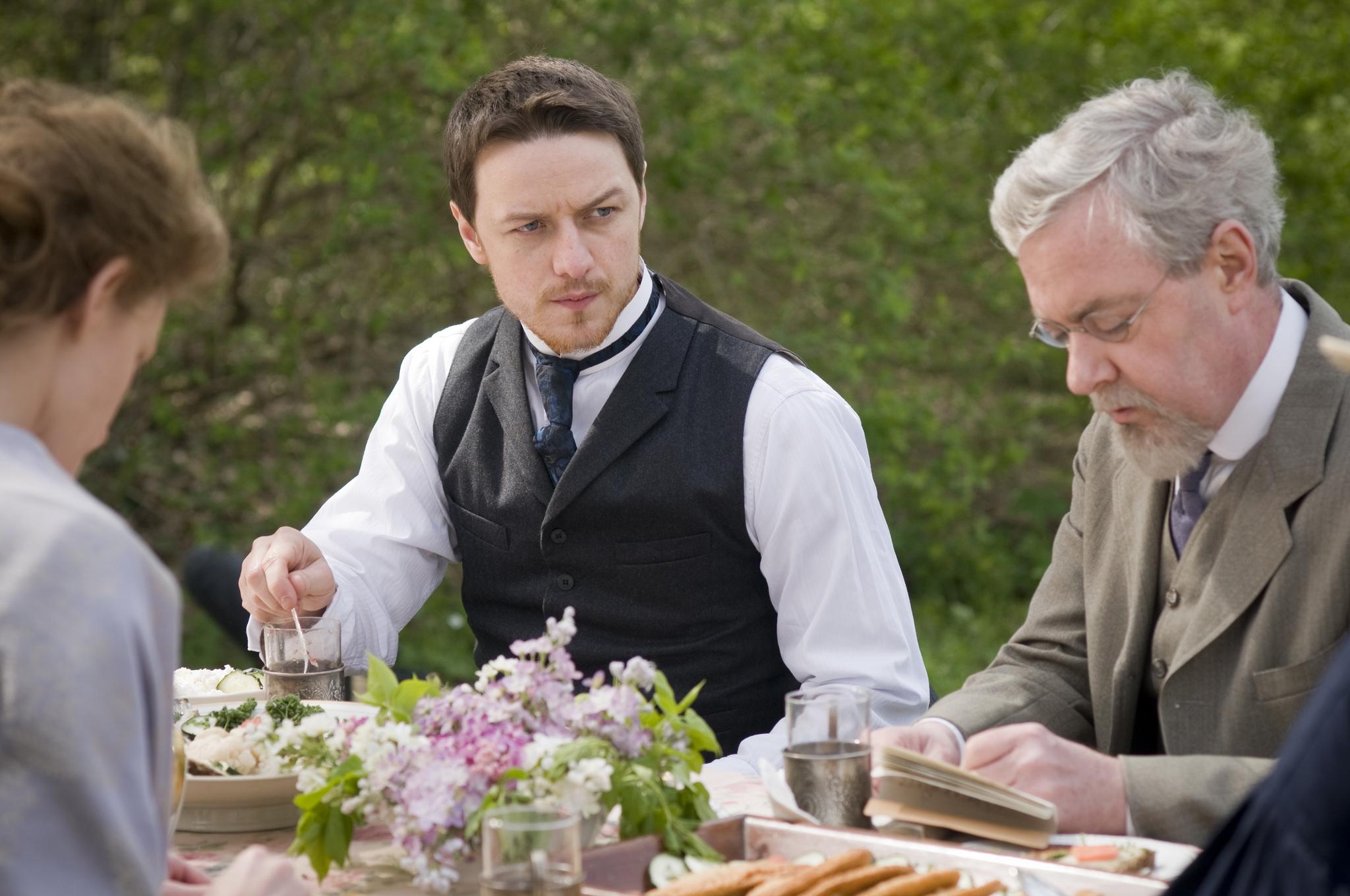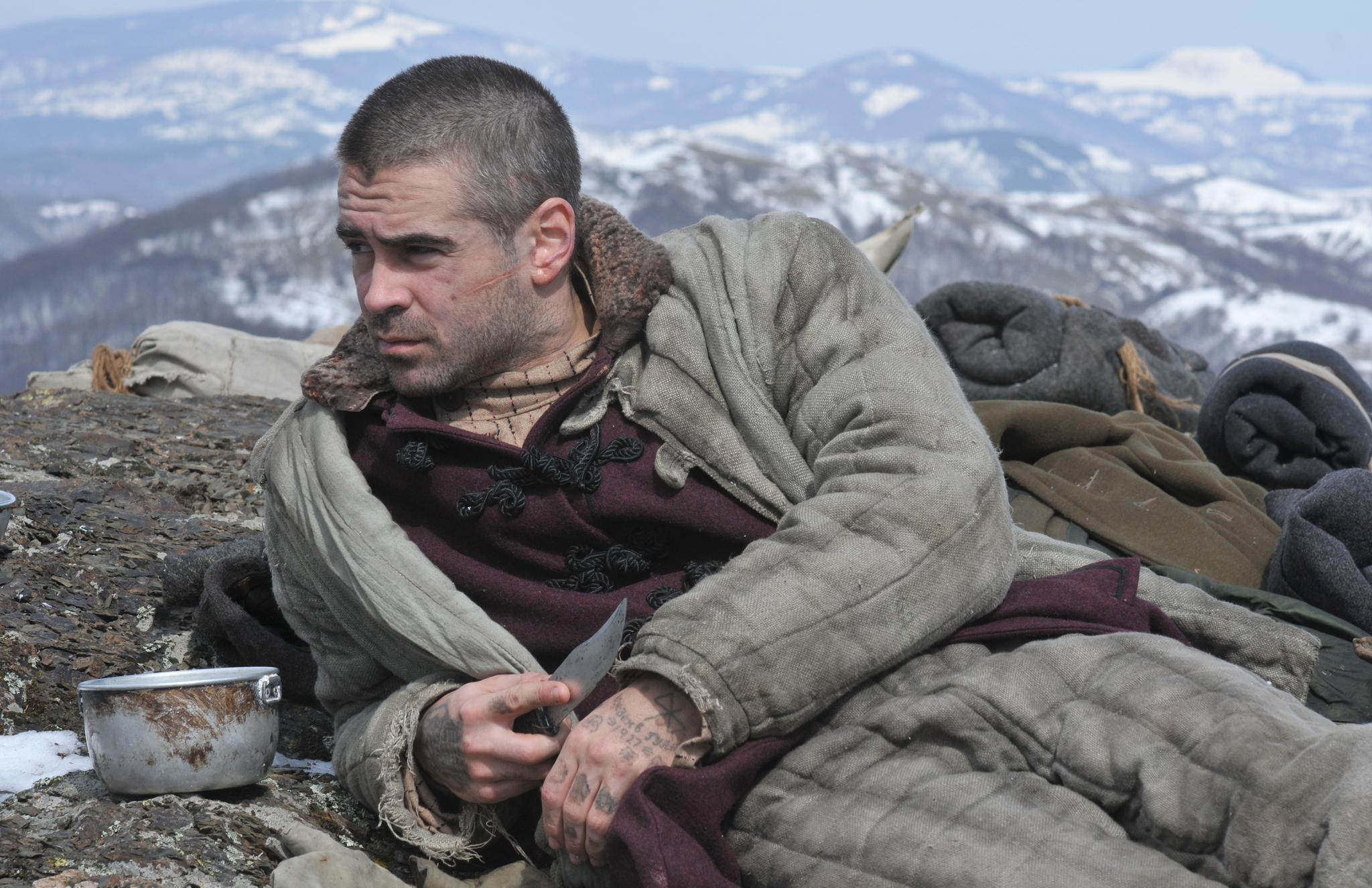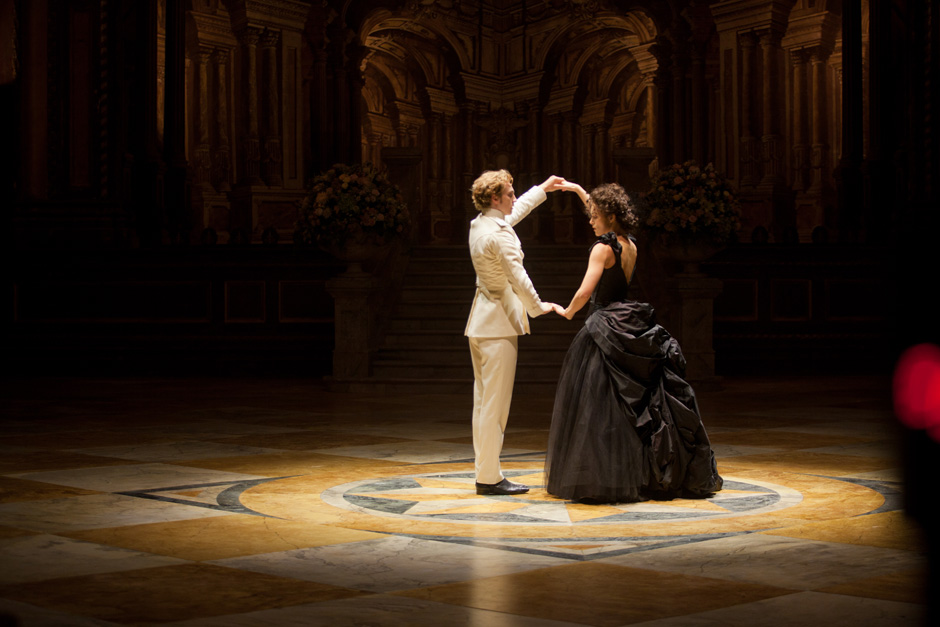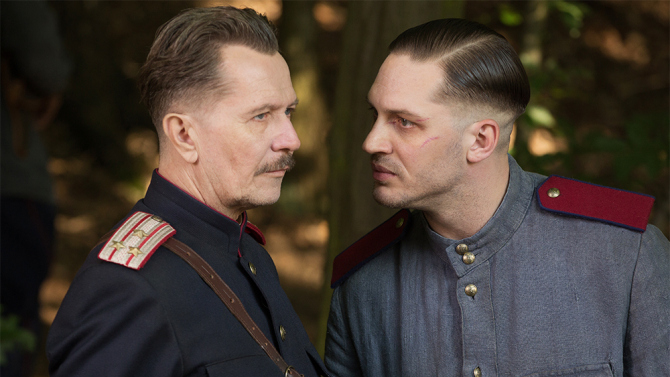8. White Nights (Taylor Hackford, 1985)
Ballet meets tap dance in this fairly enjoyable film of the 80’s. Nikolai Rochenko (Mikhail Baryshnikov) is a Russian ballet dancer who defected to the West years ago. He is in a plane flying over Russia when, all of a sudden, a malfunction forces the plane to land in Siberia.
The KGB wants him to return to Russia, so they tell everyone that his injuries are too severe for him to travel back to the U.S. They place him in the care of American tap dancer, Raymond Greenwood (Gregory Hines), who himself defected to Russia several years ago. However, Rochenko is not about to give in and is determined to escape.
So, with the help of Raimond and his former lover, he arranges a daring escape. Baryshnikov’s exceptional dancing, Hines’s masterful tap dance together with the lavish decors and the beautiful Saint Petersburg scenery are all one needs to enjoy this underrated musical.
9. Onegin (Martha Fiennes, 1999)
From its very beginning, this film, an adaptation of Alexander Pushkin’s novel in verse “Eugene Onegin”, captivates its audience and doesn’t let it go until it is done. The film begins with winter scenery, almost of mystical proportions, in which a carriage on runners being pulled through the snow. The carriage is shot through a desolated small forest. Inside the carriage an introspective Ralph Fiennes, who plays Onegin, asks himself “when will the devil take me?”.
The film, directed by Ralph’s sister Martha, is fairly faithful to Pushkin’s poem (though some episodes of the book where condensed) capturing its essence very well. It is the story of Eugene Onegin, a bored St Petersburg socialite who inherits his uncle’s estate in the country. It is there that Onegin finds his match. A country girl named Tatyana (Liv Tyler) writes him a passionate love letter but Onegin cruelly rejects her.
After fleeing the estate (because of a duel), Onegin returns six years later only to discover that Tatyana is now married to a prince. Realizing that he indeed loves Tatyana, Onegin begs for her forgiveness and unravels his shallow empty soul.
This also has a very good choice of music for the soundtrack and its period piece aspect paints the picture of 19th century Russia very well. The scenes of snow and mist over water are a significant contrast to the sumptuous indoor scenes, as though nature itself reflects what lies in the human heart…that no wealth and lavishness created by man can assuage.
10. Enemy at the Gates (Jean-Jacques Annaud, 2001)
Russian history will forever be fascinating. In this history – but also in worldwide history – the Battle of Stalingrad (that lasted five months, one week and three days) is a chapter covered in blood and sacrifice. Annaud’s film tells the story of Vasily Zaytsev (Jude Law), shepherd from the Ural Mountains who is now a top class sniper. Zaitsev stalks the Germans, taking them out one by one, thus hurting the morale of the German troops.
A political propaganda officer named Danilov (Joseph Fiennes) sees this opportunity as a great way to give his countrymen some hope. So he starts publishing the young sniper’s efforts turning him into a national hero overnight, even though Vasily feels that he cannot live up to the expectations on him.
There is also a romantic plot in this film that cannot be ignored. Vasily and Danilov fall in love with the same girl, Tanya (Rachel Weisz), and animosity begins to flow between them. To makes matters worse a master sniper named König (Ed Harris) arrives from Germany to put an end to the extraordinary skilled Russian sniper. A desolated tale of hope, love and despair in the bleak, icy winter of Stalingrad.
11. Transsiberian (Brad Anderson, 2008)
When it comes to the urban landscape of Russia foreigners think of Moscow and Saint Petersburg. When it comes to natural landscape, Siberia is the first place that pops to mind. Siberia is on every traveler’s list, even with those who prefer warm sunny islands. And what better way to visit Siberia than taking the famous transsiberian train. These are exactly the thoughts of American couple Roy (Woody Harrelson) and Jessie (Emily Mortimer). They are taking the train from Beijing to Moscow as an adventurous side trip on their return home from Christian mission in China.
Jessie cannot seem to shake her past image as a “bad girl” because she feels strangely attracted to their cabin mate Carlos. At one stop Carlos invites Jessie on a short field trip where he tries to rape her. In her struggle to get away Jessie kills him and decides not to tell anyone, not even Roy. Unfortunately, also riding on the train is narcotic division detective Grinko (Ben Kingsley) who is after Carlos on the charge trafficking drugs.
Things only get complicated from here as betrayal and mistrust start to take over. On the technical side, Brad Anderson has put together a story rich in atmosphere that really convinces you all this could only happen here, on the train, in the snow, in the none-too-touristic rural Russia, literally in the middle of nowhere where the outdoors consists only of snow.
12. The Last Station (Michael Hoffman, 2009)
If earlier in the list we talked about the works of Leo Tolstoy, it is no time to talk about Leo Tolstoy himself. It is the year 1910 and acclaimed Russian novelist Leo Tolstoy (Christopher Plummer) has given up on writing and acts as the leader of the Tolstoyan Movement, whose basic tenets are brotherly love and the denouncement of material wealth and physical love. His chief follower is Vladimir Chertkov (Paul Giamatti), who does whatever he requires to advance the cause.
Chertkov hires a young man named Valentin Bulgakov (James McAvoy) to be Tolstoy’s personal secretary in carrying out this work. On the estate, he meets Tolstoy’s wife, the Countess Sofya Andreevna Tolstoy (Helen Mirren), who believes that the royalties of her husband’s writings should be given to her, after he passes, and not to the movement.
Valentin find himself mediating the conflict that has arisen in the Tolstoy household. This beautifully shot historical drama illustrates Tolstoy’s struggle to balance fame and wealth with his commitment to a life devoid of material things.
13. The Way Back (Peter Weir, 2010)
The film is inspired by the memoir book “The Long Walk”, by former Polish prisoner of war Slawomir Rawicz, who escaped from a Soviet Gulag and walked 6.400 km to find freedom. In Weir’s film “The Way Back”, his name is changed to Janusz. The film begins with the conviction of Janusz (Jim Sturgess) – on the count of espionage – to twenty years imprisonment in the Gulag.
Once there he realizes that if he stays he is going to die, so he plots to break out along with bitter American inmate Mr. Smith (Ed Harris), funny Yugoslavian accountant Zoran (Dragos Bucur), Polish cook Tomasz (Alexandru Potocean), Latvian priest Voss (Gustaf Skarsgård) and Russian criminal Valka (Colin Farrell), who brutally forces his involvement in the group.
Their journey begins in the cold icy scenery of Siberia, through the spectacular but dangerous Himalayan Mountains, all the way to the sacred city of Lhasa. Along their journey, they face snow, unbearable cold, mosquitoes, hunger, the desert, sand-storms and thirst. All the things a man must endure for freedom.
14. Anna Karenina (Joe Wright, 2012)
“Anna Karenina”, one of Leo Tolstoy’s masterpieces, is one of those books that has had many adaptations for the big screen and will probably continue to have at least as many in the future; it is one of those books that just won’t let the filmmakers rest. Of course, the avid readers will never be satisfied with any of the adaptations as it is impossible to convey the complexity of the novel in two hours.
Anna Karenina herself has had many actresses portraying her ranging from Greta Garbo, to Vivien Leigh, to Sophie Marceau and most recently (on the big screen) Keira Knightley. Director Joe Wright wanted to give a fresh spin to the classic story and made the film look like a theater play, with most of the scenes taking place on a huge stage and succeeding each other with a change of décor but not location. This was hailed by some as a very clever way to tell the story but it did not go well at all with the traditionalists.
Nevertheless, it is a very interesting way to tell a story that has been told and retold – this is the reason we will not go into the subject of the film. Joe Wright’s “Anna Karenina” tells the story of Russia, but it tells the story of aristocrat Russia; it tells it not through snow and taigas, but through opulent settings, costumes and jewelry, just enough to make you feel that you are there with Anna Karenina enjoying “the good life”.
15. Child 44 (Daniel Espinosa, 2015)
“Child 44” continues a tradition that was lost somewhere in the 80’s that of English-language films about other countries, which features Hollywood actors speaking English with a foreign accent. This is done for mainstream purposes but it is often very annoying.
Even an accent-master such as Gary Oldman cannot lead the audience to believe that he is Russian just from speaking English with an accent. So clearly, the language is not the strong point of this film but, with that being said, it is an enjoyable thriller with breathtaking scenery.
The plot is about an idealistic pro-Stalin security officer who decides to investigate a series of child murders in a country where supposedly this sort of crime doesn’t exist. The state would not hear of the existence of a child murderer, let alone a serial killer. He gets demoted and exiled but decides, with just the help of his wife, to continue pursuing the case.
Author Bio: Horia Nilescu is a 30-year-old cinephile from Brasov, Romania. He works at a local bookstore as a multimedia & events manager (handling supplying issues in regards to cd’s and dvd’s and also organizing local events). He is passionate about film and fascinated by its diversity. He has created a local film club in Brasov (going of 3 years) in which he handles all aspects. He likes to talk and write about movies but most importantly he likes to watch them.
